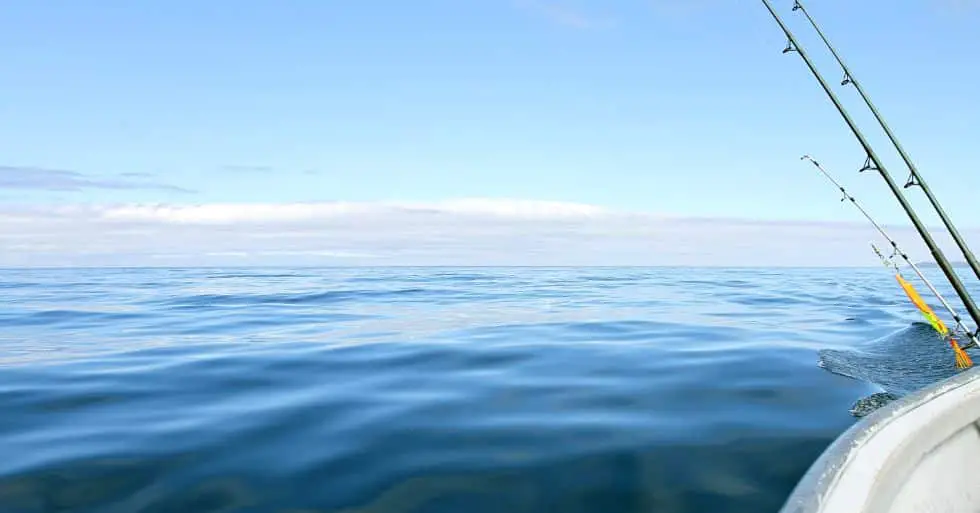For anyone who owns a boat, it’s important to be aware of the damage that saltwater can do. Saltwater can quickly corrode metal parts, and it can also cause wood to rot.
What can you do to prevent a boat from saltwater damage? In this article, we will discuss how saltwater damages boats and what you can do to prevent it from happening to you!
What Can Saltwater Do To A Boat?
Saltwater is highly corrosive and can cause serious damage to boat hulls, propellers, engines, and other metal components. Over time, saltwater exposure can even eat through fiberglass and paint.
Barnacles are also very prevalent in salt water, and if you don’t replenish your hull with antifouling paint often, barnacles will start to build up. If you take your boat out of the water often, you shouldn’t have to worry about barnacle buildup.
Related Article: Barnacles On Your Boat: What You Need To Know
What Are The Most Common Ways That Saltwater Damages Boats?
The most common ways that saltwater damages boats are through corrosion and electrolysis.
- Corrosion occurs when the metal in various components is exposed to saltwater. The saltwater reacts with the metal, causing it to break down. Over time, this can cause serious damage to boat hulls and engines.
- Barnacles form on hulls causing paint loss and increase drag.
- Electrolysis occurs when saltwater creates an electrical current that damages engines, boat hulls, and other components. This electrical current can malfunction the engine and components.
Related Article: Saltwater vs Freshwater Boating (Ultimate Guide)
What Can Happen If You Neglect Damage Done By Saltwater To Your Boat?
If you live in a coastal area or casually boating to enjoy spending time on the water, it’s essential to be aware of the damage that salt water can do to your boat.
Over time, the salt in the water will eat away at the boat’s hull, causing it to become thinner and more susceptible to leaks. If you don’t take steps to protect your boat from saltwater damage, it can eventually lead to major problems, including:
Weakening of the hull:
As the saltwater eats away at the hull, it will gradually become weaker and more susceptible to punctures or breaking. This can be a severe problem if you’re out on the water and hit something, as there’s a risk that the hull could give way and sink the boat.
Corrosion of metal components:
Saltwater is also highly corrosive, so any metal components on your boat will slowly start to corrode. This can include the engine, propellers, and even the bolts holding the boat together. Over time, this corrosion can cause serious problems and render some components unusable.
Mold and mildew growth:
Saltwater is also a breeding ground for mold and mildew, so if you don’t take steps to protect your boat from it, you’ll likely find that these growths start to take over. Not only does this look unsightly, but it can also cause serious health problems if you’re exposed to it.
Deterioration of the boat’s finish:
Saltwater can also damage the boat’s finish, making it look dull and faded. If you don’t want your boat to lose its shine, you’ll need to take steps to protect it from saltwater damage.
Premature Aging:
All of the above damage can contribute to your boat aging prematurely. If you want your boat to last for many years, it’s important to take steps to protect it from saltwater damage.
So, it’s essential to be aware of the damage that salt water can do to your boat and take steps to protect it. If you don’t, you could find yourself with a serious problem on your hands.
Tips For Keeping Your Boat Safe From Saltwater Damage
If you want to protect your boat from saltwater damage, follow these 10 tips:
1. Keep your boat clean
This one’s a no-brainer. A clean boat is a happy boat. When it comes to saltwater, making sure your boat is clean, and there is no standing water after every use is very important. So, scrub your deck, clean your hull, and make sure there’s no standing water anywhere on your boat.
2. Wax your boat every 3-6 months
Waxing your boat is extremely important as it protects your gel coat from corrosive saltwater and barnacles. I recommend using a polymer sealant wax such as this one on Amazon for saltwater boats. This wax will last much longer than traditional hull wax.
3. Rinse your boat after every use
This is especially important if you’ve been boating in saltwater. Rinse your boat with fresh water as soon as you can after every trip. This will help remove any salt accumulated on the surface and prevent it from damaging further.
4. Flush your boat’s engine after every use
Flushing your boat’s engine is an integral part of maintaining it. Saltwater can cause corrosion and other damage to the engine, so it’s important to flush it out after every use.
Many boats have flushing connections, but some may need you to do it manually using flush muffs. Check out this YouTube video to learn more.
5. Repaint your hull with anti-foiling hull paint every 1-3 years
Lakeside Marine recommends you repaint your bottom paint once every year if your boat stays in the water all season and once every 2-3 years if it’s only in the water when you are using it. A good antifouling paint will help limit marine growth on your hull.
6. Store your boat properly
When you’re not using your boat, make sure it’s stored in a dry, covered area. If possible, elevate your boat so that it’s not sitting in water. And if you’re storing your boat in a garage or shed, open the doors and windows occasionally to let fresh air circulate.
7. Inspect your boat regularly
Inspecting your boat regularly for any signs of saltwater damage is important. Look for rust on metal surfaces, corrosion on electrical wires, and delamination on the hull. If you see any of these, take action immediately to prevent further damage.
8. Use the proper cleaners and lubricants
When cleaning your boat, use cleaners and lubricants that are specifically designed for saltwater use. These products will help protect your boat from corrosion and other damage caused by saltwater exposure.
9. Protect your boat’s electrical system
Saltwater and electricity are bitter rivals. So, it’s vital to protect your boat’s electrical system from saltwater damage.
- Make sure to use marine-grade electrical components.
- Avoid running wires through areas where they could get wet.
- Coat all exposed electrical connections with waterproof grease.
10. Cover your boat when not in use.
When you’re not using your boat, make sure to cover it. This will protect it from salt water, sun damage, and other elements that could cause damage. There are a variety of boat covers available, so choose one that’s right for your boat.
11. Use the proper anchors and moorings.
Use the proper anchors and moorings if you’re anchoring or mooring your boat in saltwater. These materials are resistant to saltwater damage and help keep your boat safe.
12. Be careful when boating in saltwater
Even if you take all the necessary precautions, there’s always a risk of saltwater damage when boating in salt water. So, be careful and take your time. If you see any signs of damage, take action immediately to prevent further damage.
Saltwater can damage your boat, but if you take the proper precautions, you can minimize the risk of damage.
By washing and waxing your boat regularly, storing it properly, and using the proper cleaners and lubricants, you can help keep your boat in good condition. And if you’re ever in doubt, consult a professional for advice.
How To Clean A Boat That’s Been Exposed To Saltwater?
If you’ve been sailing or fishing in saltwater, it’s essential to clean your boat as soon as possible. Saltwater is very corrosive and can damage your boat’s hull and paint. Here are a few tips on how to clean your boat after being exposed to saltwater:
1. Rinse the boat off with fresh water as soon as possible. This will help remove any salt residue from the surface of the boat.
2. Use a pressure washer to remove any stubborn salt deposits or barnacles.
3. Wash the boat with a mild soap and water solution. (you could also use a de-salter).
4. Rinse the boat thoroughly with fresh water.
5. Wax the boat every 3-6 months to protect the hull and paint from salt damage and barnacles.
Conclusion
Saltwater can wreak havoc on boats, causing everything from corrosion to premature aging. But there are ways to prevent this type of damage. By taking some simple precautions and using the right products, you can keep your boat in top condition for years to come.
Now that you know how to prevent a boat from saltwater damage, it’s time to get out there and enjoy the waves!
- What Is The Cheapest Way To Store A Boat? - February 28, 2023
- Do Boats Need Bottom Paint? (Uncovering the Truth) - February 2, 2023
- How Much Is Bass Boat Insurance? (Real Quotes) - January 18, 2023

